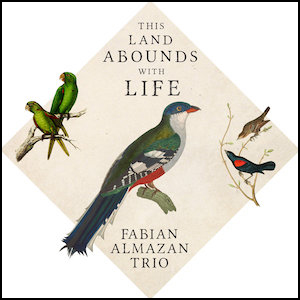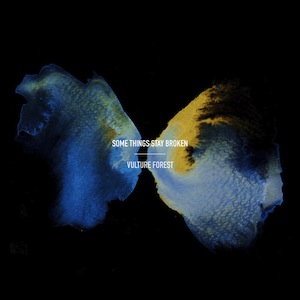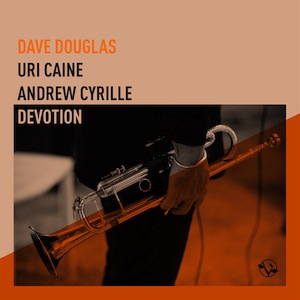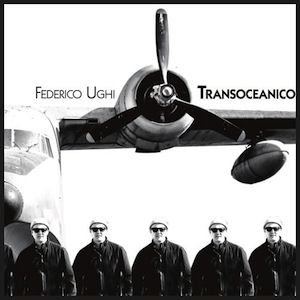Label: Royal Potato Family, 2019
Personnel – Ben Goldberg: bass clarinets; Kirk Knuffke: cornet; Jenny Scheinman: violin; Myra Melford: piano; Todd Sickafoose: bass; Allison Miller: drums.
Drummer/composer Allison Miller has always shown a penchant to jazz and rock with grooves that tick with elegance and pulse with abundant energy. Her compositions radiate swagger and soul, shinning with lively rhythmic colors and impressive melodic sensibilities. This was pretty evident on Science Fair, definitely, a career-high album co-led with pianist Carmen Staaf, and that’s what you’ll also find on Glitter Wolf, the fifth outing with her long-standing band Boom Tic Boom. The group was launched in 2010 as a quartet with Jenny Scheinman on violin, Myra Melford on piano, and Todd Sickafoose on bass, but was augmented to a sextet for the time being with the addition of virtuosic clarinetist Ben Goldberg and cornetist Kirk Knuffke.
Scheinman’s prolonged drone initiates “Congratulations, Condolences”, a consistently impressive piece that rocks at the substrate layer but leans on avant-garde empathy at the surface, notably due to the brisk, finely stated solos from Goldberg and Knuffke, who juxtapose thoughts like a conversation. However, it’s Melford who deserves all our attention, with wide-ranging leaping notes forming state-of-the-art phrases that bewilder and confound.
“The Ride" is another highlight. It takes off with explosive drums and shifts from a bruising funk eloquence (with horn counterpoint atop) to chamber classical ease to New Orleans-style jazz/blues intrepidity. Right after Knuffke and Scheinman’s confident discourses, Goldberg jumps out, taking his bass clarinet to an abysmal low-toned crusade that pumps up the groove deeply. The exciting ride ends in poised suspension.
The modernistic electro-pop touches of “Malaga” are anchored in the danceable rhythm underneath, but the sway of strummed violin, melody-driven piano groove, and the rampant clarinet fierceness, also contribute to the virtuous vibe.
The album draws inspiration from many different genres, and “Daughter And Sun” brings forth expressive folkish melodies in the head, cooking up a cordial crossover jazz. Married to a rhythm that shows optimism, Miller delivers a crisp solo peppered with incisive snare wallops, grooving tom-toms, and cymbal color. “Welcome Hotel” is another eclectic selection that invites us to exotic places with a playful and voluptuous compound of reggae catchiness along with folk and Latin elements. It ends in tango mode with the violin in evidence amidst the horns.
Not contradictory with the stylish genre-bending solution adopted on other pieces, the title track has the unpredictable Melford showing off her vast musical qualities. She slightly latinizes with zest a tune whose foundation rocks and funks with a pinch of electronica innuendo through Sickafoose’s bass lines. It becomes heavily Latin by the end with the horn section bringing on rousing activity.
Under Miller’s direction, the group keeps the music lean, sharp, and on point for a consistent musical confection with plenty of simpatico connections.
Grade B+
Favorite Tracks:
01 - Congratulations, Condolences ► 02 - The Ride ► 09 - Glitter Wolf








































